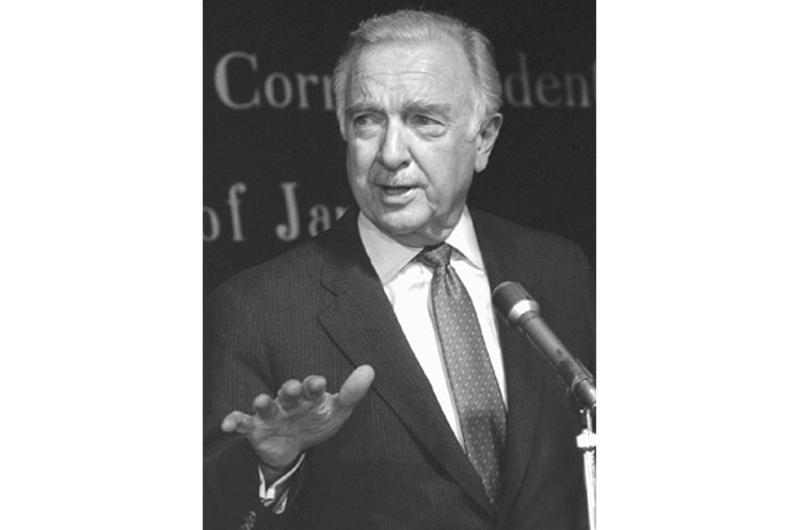Cronkite: Overuse of anonymous sources hurting journalism

CBS newsman Walter Cronkite addresses the Foreign Correspondents Club of Japan in May, 1981.
By Hal Drake | Stars and Stripes May 25, 1981
TOKYO — Newsman Walter Cronkite delivered a harsh verdict on his colleagues in the journalism trade, calling them "guilty" of misreporting because too many anonymous sources are used in news reports.
Citing the recent case of Janet Cooke, a Washington Post reporter who got — and lost — a Pulitzer Prize for a story that featured a totally fictitious character, Cronkite said it was "ironic" that the Post, a top-of-the-line newspaper, was taken in by Cooke's tale about an 8-year-old heroin addict.
"It certainly does drive another nail into our coffin, so to speak, of credibility," Cronkite told the Foreign Correspondents Club of Japan.
Cronkite, called "the most trusted man in America" during his 19 years as anchorman on the CBS Evening News, stepped out of that post recently to become a special correspondent and put together "Universe," a series that will explore science and technology all over the world.
HE TORE into the whole idea of citing anonymous sources in news reports, saying it's only occasionally necessary. At the same time, he blamed courts that pressure newspapers to reveal their sources in criminal cases and force them to be defensively confidential.
But, Cronkite said, "If a story can't be pinned to a source by attribution, or at least by fairly direct means, I don't think we ought to be using those stories.
"What we're doing every day in television, trying to cover 24 hours of news in 24 minutes, is obviously compressing this gas we give off," Cronkite said. "We're compressing that gas to such a degree that we're creating ... more heat than we are light, I'm afraid. . .
And instead of misquotes, Cronkite said, newsmen now frequently print out-of-context newsmen
He cited a story that followed him from Peking to Tokyo, saying that he left China "in a huff" because he made a useless trip to a fishery that had no fish and was asked to pay $20,000 before he could film a panda preserve.
"I didn't leave in a huff, I left in a Pan Am 747," Cronkite said. The whole story, he said, had "only a few kernels of truth."



